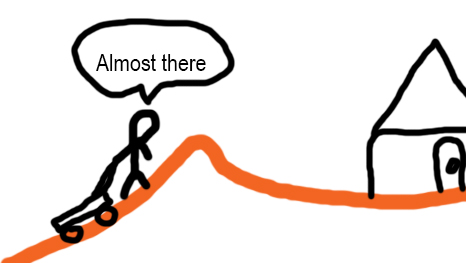4: What point of view does the author use? What are the advantages to the author’s chosen point of view? (What is the author able to do, because they chose to tell the story with that point of view?) How would the book be different if it employed a different point of view (e.g., 1st person instead of third person, or a different first-person narrator)?
The point of view that the author uses is unlike any other that I’ve read. He uses first person, but also third person. This was confusing at first until I eventually got used to it. With this the author is able to do many things that any other type of narration could not. For example, it allows him to narrate all the characters and show how they eventually come to meet and bond together as colleagues and friends, while also telling his own story. An example of them discovering something in a tree happens on the very last page of the novel. They’re all together when “Sillett went aloft. Marie Antoine followed. — ‘I’m finding tiny golden-brown ants up here,’ Antoine said on the radio, ‘It’s only the second time I’ve seen ants up in a redwood.’ ‘That may be a new species,’ Sillett said” (248). At one of the tallest altitudes they’ve ever been in, they found ants. It occurred to me that these ants weren’t just a discovery as for a new species, but a discovery in friendship. This may sound cheesy but it’s truly what I believe. The reason I say this is because they are confident enough to talk to each other about things they find. Have you ever heard the saying, “Your true friends are the ones who you tell good and bad news to first.”? That only further proves my opinion. This just shows how seeing each one of the character’s back stories from that specific narration style allowed us to understand their companionship easier. I feel like If this book were to be written in a different narrative style, like only in the first person, things would be a lot more confusing in the way we view the characters because we don’t know where they even came from. It would be like just adding a random character at a random time. I feel like this was a good decision by the author.
Works Cited
Preston, Richard. The Wild Trees: A Story of Passion and Daring. New York: Random House, 2007. Print.




